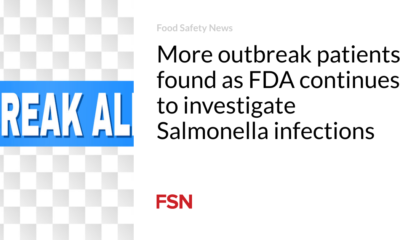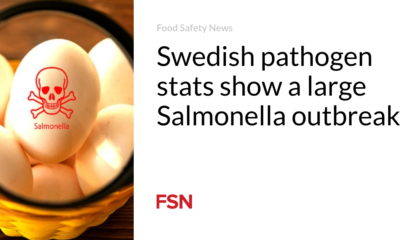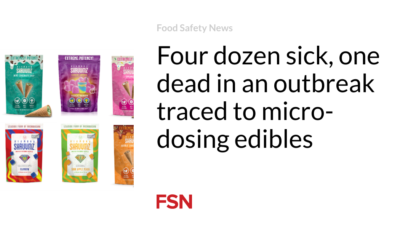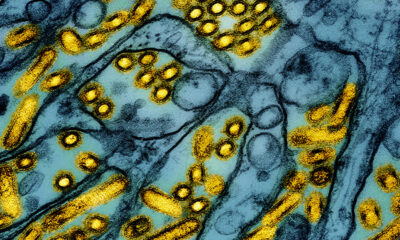Food
Untreated water turned out to be a source of the Salmonella outbreak, which has sickened hundreds of people.
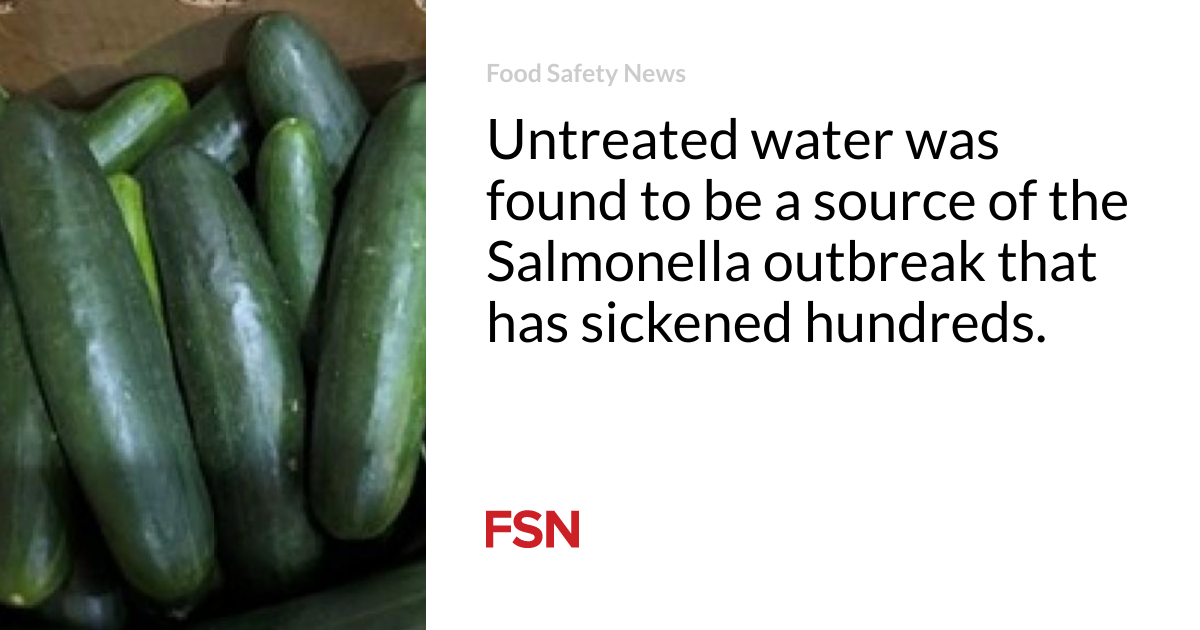
According to the Food and Drug Administration, Bedner Growers Inc. from Boynton Beach, FL, the source of cucumbers involved in an outbreak of Salmonella infections.
According to FDA researchers, untreated canal water is the most likely source of the pathogen.
The outbreak, involving two types of Salmonella – Salmonella Africana and Salmonella Braenderup – has sickened 449 people in 31 states and the District of Columbia. Of the 188 patients interviewed, 129 reported eating cucumbers before becoming ill.
There are likely many more outbreak patients than reported. This is because some patients do not seek medical attention and others are not explicitly tested for Salmonella infection. According to the Centers for Disease Control and Prevention, for every confirmed patient in a salmonella outbreak, 29 remain unconfirmed.
The illnesses started on dates ranging from March 11 to June 4. Of the 360 people for whom information was available, 125 have been hospitalized, an unusually high rate for Salmonella outbreaks. No deaths have been reported. Patients range from less than one year old to 94 years old.
Although laboratory, epidemiological and traceback data have shown that cucumbers from Bedner Growers Inc. are the likely source of disease, the grower does not take into account all infections during the outbreak.
“As part of the investigation, the FDA conducted an on-site inspection of Bedner Growers Inc., a grower that supplies Fresh Start Produce Sales Inc. The FDA collected samples as part of this inspection and Salmonella Braenderup was detected in samples of untreated canal water used by Bedner. Growers, Inc.,” according to the FDA’s July 2 outbreak update.
Whole genome sequencing Analysis has shown that the Salmonella found in the water used by Bedner Growers Inc. corresponds to a Salmonella Braenderup strain causing some of the illnesses in this outbreak. Additional Salmonella species were detected in soil and water samples collected from Bedner Growers Inc. The Centers for Disease Control and Prevention and the FDA are investigating whether these strains have caused illness in humans.
Additionally, based on collected traceback information, Bedner Growers Inc. delivered cucumbers to multiple service points where sick people reported purchasing or eating cucumbers. The FDA continues to conduct traceback to identify other potential points of contamination.
Bedner Growers Inc.’s cucumber growing and harvesting season. is over. There is no product from this company on the market and there is likely no ongoing risk to the public from Bedner’s cucumbers.
About Salmonella infections
Food contaminated with Salmonella bacteria usually does not look, smell or taste spoiled. However, anyone can become ill from a Salmonella infection. According to the CDC, infants, children, seniors and people with weakened immune systems are at greater risk for serious illness because their immune systems are fragile.
Anyone who has eaten cucumber and developed symptoms of Salmonella infection should seek medical attention. Sick people should tell their doctor about possible exposure to Salmonella bacteria, because special tests are needed to diagnose salmonellosis. Symptoms of Salmonella infection can mimic other diseases, often leading to misdiagnosis.
Symptoms of a Salmonella infection may include diarrhea, abdominal cramps, and fever within 12 to 72 hours of eating contaminated food. Otherwise, healthy adults are usually sick for four to seven days. However, in some cases, the diarrhea can be so severe that patients require hospitalization.
Older adults, children, pregnant women, and people with weakened immune systems, such as cancer patients, are more likely to develop serious illness and serious, sometimes life-threatening conditions.
Some people become infected without becoming ill or showing symptoms. However, they can still spread the infections to others.
(To sign up for a free subscription to Food Safety News,Click here)



